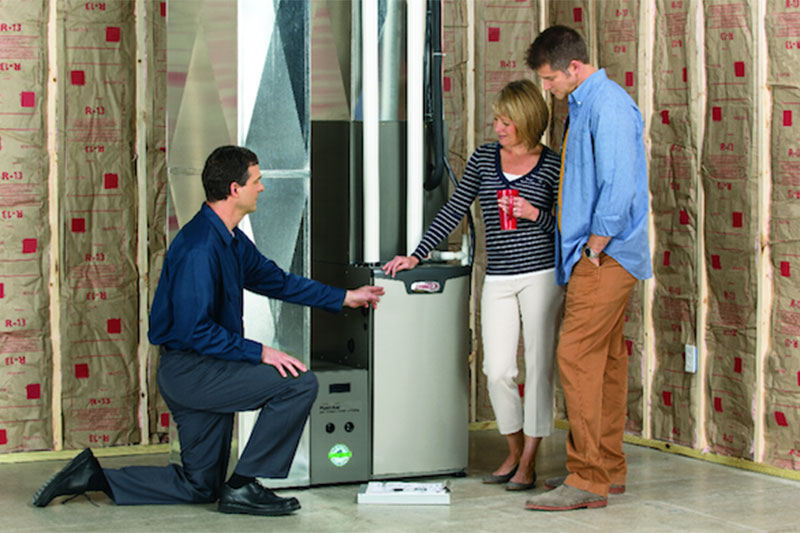
Natural gas furnaces need adequate space and airflow to run right.
Your furnace can overheat if it doesn’t have enough clearance. It also makes it hard for our professionals to accomplish furnace repair.
Routine furnace maintenance is crucial to keep your system operating trouble-free. A regularly serviced furnace may heat more efficiently, which could lower your energy bills.
Related: How Does Furnace Maintenance Impact the Energy Efficiency of Your Home?
Maintenance often helps us discover troubles before they become expensive. This could help lower future repair costs and likely lengthen the life of your furnace.
So how much area should your furnace really have?
How Much Space Should My Furnace Have?
If you’re updating your basement or closing off your furnace room, you should research manufacturer directions and Norton ordinances for clearance requirements.
As a general suggestion, your heater should be 30 inches away from furnace room walls on all sides. This lets our service professionals to conveniently replace it.
You also need to ensure the area has plentiful airflow and ventilation, especially if you have an outdated furnace with a metal flue.
Related: Furnace Service or Furnace Replacement: What to Consider
This model of furnace pulls combustion air from the surrounding location. If there’s not enough air, unsafe gas fumes and poisonous carbon monoxide could back draft into your home.
If your furnace is located in a little room with a gas water heater, you may need to add more openings. This could involve a fully louvered door or vents in the walls.
You don’t need to consider airflow and ventilation as much if you have a up-to-date, high-efficiency furnace with PVC piping. Your furnace uses one pipe as an exhaust vent and the other to pull in air.
Keep Hazardous Items Separate from Your Furnace
Although furnace rooms function as laundry and storage space, you should keep yours free of things that could be fire hazards.
This includes:
- Clotheslines
- Cleaning or laundry products
- Gasoline, paint or paint thinner
- Rags and papers
- Wood scraps and sawdust
- Used filters
If you have a cat, situate your litter box elsewhere. Cat urine contains ammonia, which could corrode your furnace’s heat exchanger. Plus, the furnace could spread the stinky odors all over your home.
You should also regularly sweep by your furnace to stop dust from developing.
Related: Is it Time for Furnace Service or Replacement?
Request a Free Quote for Furnace Service
Whether you need furnace replacement or routine maintenance in Norton, HCE Systems can expertly meet your needs. Our highly trained technicians can repair any heating equipment model or brand.
Call us at 276-302-0076 or use our online scheduler to set up an appointment today.
